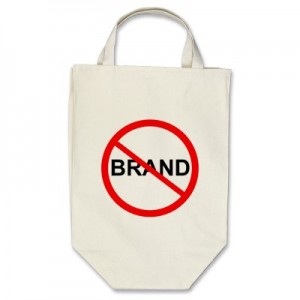
Updated to reflect the Assembly amendments made on July 20, 2017. (Revisions to this previously posted article are in bold or in red.)
On June 27, California Governor Jerry Brown signed SB 94 into law effectively repealing MCRSA and AUMA, combining regulations governing medical and adult-use cannabis under the Medical and Adult-Use Cannabis Regulation Safety Act (MAUCRSA)—that’s a mouthful.
Despite the synthesis of these laws, other cannabis-related bills remain pending before the California legislature. For example, SB 162 incorporates a range of restrictions aimed at reducing children’s exposure to cannabis advertising including language already implemented in SB 94 for the regulation of ads in broadcast, cable, radio, print, and digital mediums, requiring that at least 71.6% of the audience be at least 21 or older. However, as written, SB 162 also proposes to ban state-licensed cannabis businesses from advertising “medical cannabis or medical cannabis products through the use of branded merchandise, including but not limited to clothing, hats, or other merchandise with the name or logo of the product.” The Senate unanimously passed this measure in June and it is currently moving through the Assembly committees.
On July 20, 2017, the Assembly amended SB 162. In part, it added legislative findings to support the constitutionality of the restrictive language in the bill. The legislative findings provide background on similar prohibitions enacted as to the tobacco industry, and cited studies that indicate “adolescents who are exposed to advertising of cannabis were more likely to report using cannabis or say they planned to use the substance in the future.” In addition to providing further context to the purpose for the proposed advertising restrictions, the Assembly eliminated the exemption for non-commercial speech (discussed below).
Of course, the industry wants to be responsible, but some of the language in the current bill is overreaching and ambiguous. If SB 162 passes, further clarification is needed to determine what the legislature intended to cover with this prohibition.
Below we provide our analysis of the proposed regulation and call attention to unanswered questions:
- Definition of Branded Merchandise
The passage of this bill, as drafted, has the potential to cause significant disruption as cannabis companies often sell branded t-shirts, accessories, and paraphernalia, such as branded lighters, vaporizers, pipes, and grinders. While branded products may serve to promote a business, they can also be a source of revenue.
The bill specifically identifies branded merchandise that it would prohibit, namely, clothing and hats; but also expansively contemplates “other merchandise with the name or logo of the product.” What kind of “other merchandise” is prohibited?
MAUCRSA’s definition of “advertisement” excludes labels affixed to cannabis or cannabis products, but what about “paraphernalia” items such as lighters, vaporizers, pipes, and grinders? And what about “swag” items such as writing pens, cloth bags, etc. that are typically distributed at trade shows? While the legislative analysis by the Senate Rules Committee purports that the purpose of this bill is to avoid persons wearing branded shirts/hats from becoming “roving billboards,” a lighter or grinder is typically kept in someone’s pocket until used and not consistently outwardly displayed.
- No Explicit Exemption for Noncommercial Speech
The Assembly amendments strike the provision explicitly exempting advertisements that are noncommercial speech. While this may spark concern regarding the constitutionality of this ban, the legislature cites to the federal district court case of Commonwealth Brands, Inc. v. U.S., 678 F. Supp. 2d 512 (W.D. Ky. 2010), which determined that the prohibition on branded merchandise for tobacco companies was constitutional and narrowly tailored to meet the goal of reducing youth use.
The bill states that its provisions would not apply to any “noncommercial speech.” Categorizing speech as commercial or noncommercial is not always clear, but generally political speech, such as advocating for the legalization of cannabis would likely be considered noncommercial. Yet, it is unclear how much political or noncommercial speech is needed, and where it should be located on the merchandise. Would a simple statement, e.g., “Legalize Marijuana” on the back of a t-shirt and bearing a cannabis brand logo on the front exempt that shirt from SB 162’s prohibition? Would the analysis change if the back of the shirt stated: “The greatest service that can be rendered to any country is to add a useful plant to its culture. – Thomas Jefferson”
- Distinction Between “Product” Marks & “Company” Marks
SB 162 specifically prohibits branded merchandise bearing the name or logo of cannabis or a cannabis product. It is unclear whether this prohibition also applies to branded merchandise with the company’s logo if it is different from the name or logo of its product. For example, if a company named FictionFun offered a cannabis product under the name HappyChew, would it be able to sell branded merchandise with the FictionFun mark? Or would the restriction only apply to merchandise branded with HappyChew?
- Prohibition Only on the State Cannabis Licensee?
SB 162’s provisions specifically apply to a “licensee,” which is defined as a person or company that holds a state-issued medical or adult-use cannabis license under MAUCRSA. On its face, this may allow a cannabis licensee to assign its brand rights to a third party, e.g., an intellectual property holding company, who may then transfer the rights to sell such branded merchandise. Alternatively, the language may allow a cannabis licensee to authorize a third party to make use of its brand rights for the purpose of selling branded merchandise.
Compared to regulations restricting advertising in other adult-use states, California’s SB 162 is quite restrictive. For a relatively short bill, SB 162 generates a surprising amount of questions and concern. We continue to monitor this bill and look at ways to influence changes. At Evoke Law, we stay up-to-date on pending cannabis legislation that may affect our clients and would be happy to discuss the potential implications of this or any law relating to your brand.
We encourage you to contact your California state representatives and voice your concerns about SB 162.